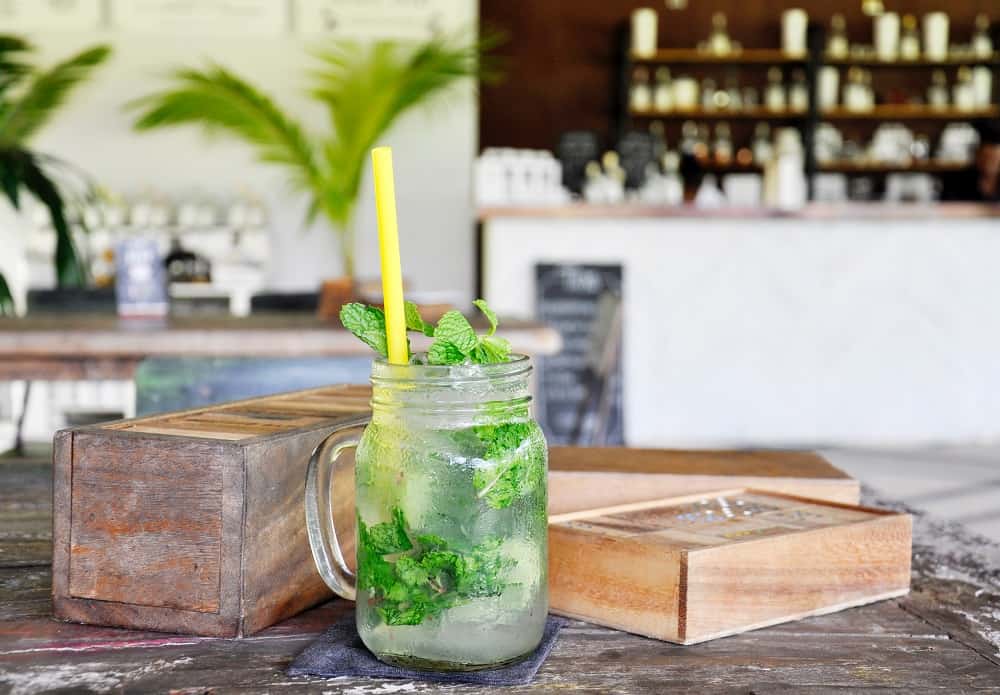A Guide to Plastic Straw Alternatives (+ Encouraging Venues to go Straw Free)
When it comes to reducing our personal plastic use, and also tackling plastic pollution, it’s not a case of targeting everything at once. For most people that’s overwhelming and a recipe for giving up.
A more realistic approach is choosing one thing to focus on, or maybe a couple of things, and work towards making these changes before embarking on the next thing.
Rethinking single-use plastic items (and particularly plastic packaging) is a great place to start. These kinds of items always feature in the top 10 items found in beach clean-ups and litter pick-ups. They create a litter problem because they are lightweight and easily escape into the environment.
They are also items that are easy to avoid or replace. There are usually multiple solutions.
One of the top 10 items found in litter pick-ups and beach clean-ups is plastic straws. When we are trying to reduce our plastic footprint – and encourage others to do so – tackling plastic straws is an easy first step.
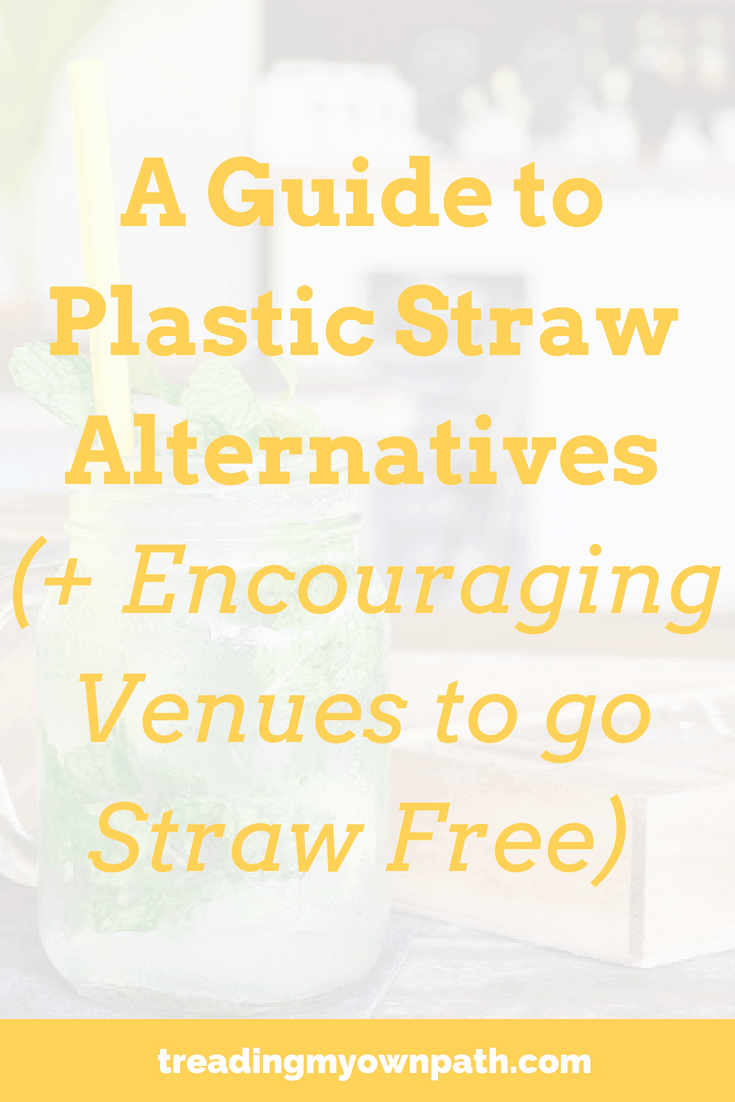
Plastic Straws are Not Recycled
One plastic straw might seem small, but it’s the quantity that is used that causes the issue. It is estimated that Americans use 500 million plastic straws daily.
Typically plastic straws are made from polypropylene (PP, plastic #5) or less commonly, polystyrene (PS, plastic #6). Polystyrene isn’t always the white, fluffy looking stuff – that’s actually expanded polystyrene. Straws use the non-expanded type, which is also used for coat hangers and bread tags, is coloured (or black) and looks nothing like the white version.
Plastic straws aren’t easily recycled. Partly this is because they are made from a plastic that isn’t commonly recycled. They are also too small and light to be separated successfully with machinery at the Material Recovery Facilities.
Even when polypropylene and polystyrene is recycled, it’s generally mixed with virgin (new) plastic to maintain the quality, so it’s not a closed loop.
Plastic Straws Can Be Refused
The great thing about plastic straws is that they can be refused. It’s literally as simple as ordering a drink and saying “no straw, please”.
Reusable Straw Options Exist
Reusable straw options exist, in glass (toughened glass that is similar to that used in Pyrex), metal (usually stainless steel) and bamboo. Different lengths and widths are available; which one is best is personal choice.
Personally I like the feeling of glass over stainless steel, but I do carry a stainless steel straw in my reusable cutlery set as it fits.
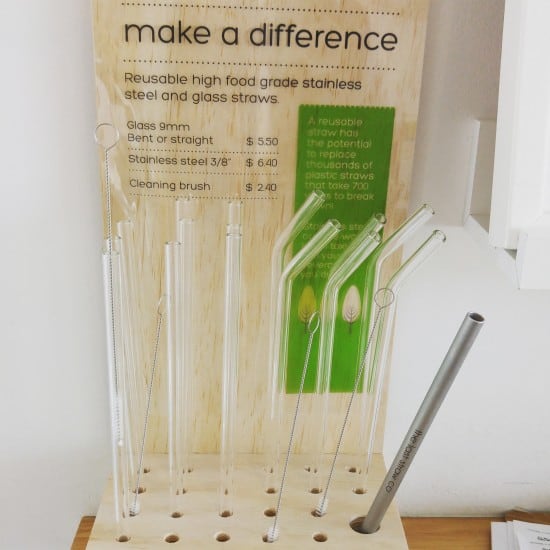
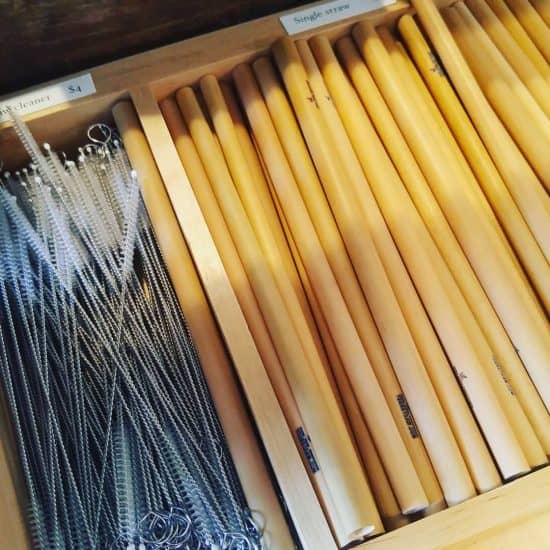
Cleaning brushes are just as readily available to remove debris.
(If you’d like to invest in a reusable straw, you might find my worldwide list of independent ethical online stores useful.)
Increasingly, venues are providing reusable straws for their customers rather than single-use disposables. These tend to be glass or stainless steel which can be sterilized. As with all kitchenware, these will be cleaned thoroughly and sanitized between customers.
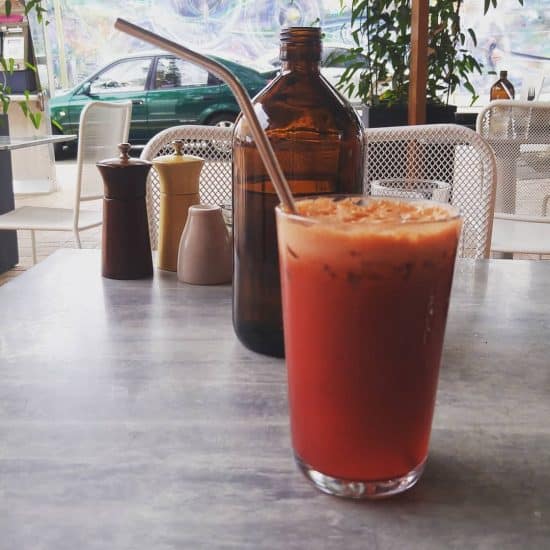
Venues Can Provide Single-Use (Plastic-Free) Straws
Banning plastic straws is not the same as banning straws altogether. Banning plastic straws does not mean discriminating against people who need to use straws because they are elderly, frail or have mobility issues.
Banning plastic straws doesn’t mean that those few drinks that really work better with a straw (frozen drinks or fresh drinking coconuts) are off the menu.
Single-use alternatives that are plastic-free include FSC-certified paper straws, bamboo straws and straws that are literally made from straw. (Straw – that’s what straws were made from until plastic took over. Hence the name!)
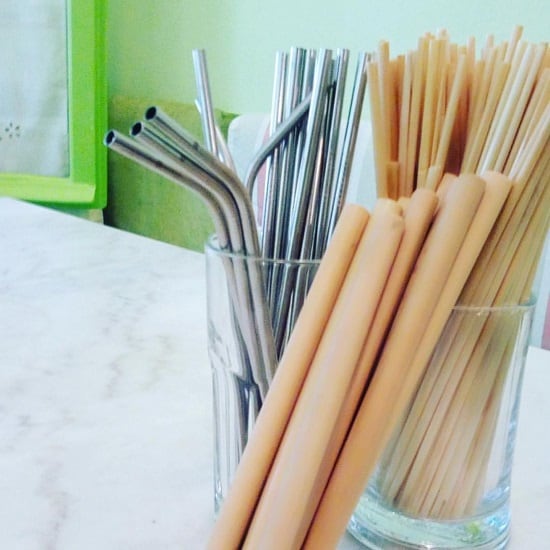
Some venues provide multiple options: this cafe in Paros, Greece offers both bamboo and stainless steel reusables for its customers, as well as single-use straw straws.
Single-Use Straws by Request Only
Many venues are beginning to recognize the waste and litter created by straws, replace their plastic straws with non-plastic alternatives, and/or offer straws by request only. Venues deal with hundreds or thousands of customers every day, so one venue deciding to go straw free can have a real impact.
As individuals, we can change our own personal habits, but we can also try to encourage our local cafes, restaurants and food vendors to join the movement. Consider approaching your favourites and asking if they’d consider removing plastic-straws.
There are a number of groups working to encourage more businesses to get on board. Three that map out participating vendors are:
The Last Plastic Straw (USA)
The Last Straw (Australia)
Straw Wars (UK)
Tackling Plastic Straws is a Conversation Starter to the Wider Issues of Plastic
The thing I love about the plastic straw problem is that solving it really requires very little effort on our part. It doesn’t require changing habits or even remembering to bring reusables. It starts with saying “no thanks”.
But at the same time, it’s a powerful way to begin the conversation with people who might not know about the plastic pollution issue, or who haven’t given much thought to the burden of single-use plastic.
Every time we say “no thanks”, we have an opportunity to talk about why. We can talk about why we are avoiding single-use plastics – whether it’s to use less resources, to reduce litter, to protect the oceans, for health reasons, or because we simply love a challenge. We can talk about the alternatives to single-use plastics. We can share success stories and examples.
We have the power to change our own habits, and we have the power to influence others. We can influence by leading by example, and we can influence by beginning conversations. That’s how we spread ideas; that’s how ideas become movements; and that’s how we bring about change.
Plastic straws are just the beginning. That is exactly where we need to start.
Now I’d love to hear from you! Do you use a reusable straw, or simply go without? If you prefer reusables, do you have a favourite type? Are there any cafes near you that offer straws only on request, or offer reusables for customers? Have you noticed the awareness rising over the last few months? Please share your thoughts below!
[leadpages_leadbox leadbox_id=140b48fc6639c5] [/leadpages_leadbox]

